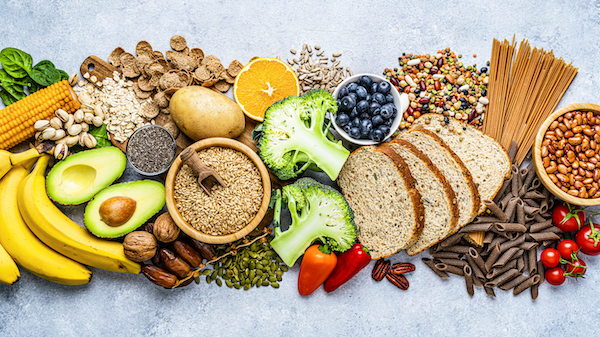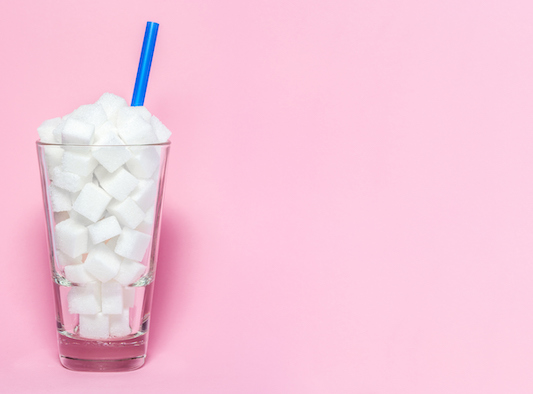One of the mysteries of women’s health is why most women are not getting enough key nutrients. I see this over and over in new clients, even when they try hard to eat right.

Is it stress? A problem with absorption? Soil depletion at work? Frankly, those questions take time to answer. That’s why I always focus at the outset on the most common vitamin and nutrient deficiencies. When you’ve taken care of them, you’ve bought time to dig deeper. And that’s what I recommend you do at home.
So here are the top six nutrients women shouldn’t be without – but unfortunately, often are.
1. Iron deficiency
Iron is so important to health, particularly for women who have heavy menstrual periods. They may be prone to iron deficiency if they don’t get enough iron.
Why you need it: Iron is a key component in hemoglobin, the molecule in red blood cells that carries oxygen to all the cells in our body. Lack of enough iron produces fatigue and ultimately iron-deficiency anemia. You are even a greater risk for osteoporosis if you are iron deficient. Too much iron, though, can be toxic, especially in long-term use, so I recommend you get your iron from food; take iron supplements only under a doctor’s supervision.
How to get what you need: Red meat, dried fruit (such as prunes and apricots), beans and lentils, spinach, squash and pumpkin seeds, and — we’re happy to tell you this one — dark chocolate are all good sources of iron. Many multivitamins created for women also include iron, but unless your doctor prescribes you an iron supplement specifically to combat an iron deficiency diagnosed through blood testing, excessive supplemental iron may do more harm than good. Also, iron included in the multivitamin can oxidize the antioxidants and thus if you are found to be iron deficient it is best to use a separate iron supplement.
2. Vitamin B deficiency
It’s a little unfair to lump all of the B vitamins into one group, but the truth is many women are either deficient or borderline deficient in some or all of them.
Why you need it: Three of the key B vitamins are Vitamin B12, Vitamin B6 and folic acid (folate). All are important for bone health, inflammation, cardiovascular health, energy production, brain function and other vital bodily processes.
How to get what you need: Many processed foods are supplemented with B vitamins. But in a whole foods-based diet, some of the best sources of B vitamins are leafy green vegetables, whole grains and animal products such as fish, meat, poultry, eggs, milk and other dairy products.
Simply focusing on a single B vitamin, such as folate, can mask deficiencies in other B vitamins, such as B12. Ideally, you want to obtain the full range of B vitamins from your food sources. If that’s not possible, select a supplement that contains not just one, but the full range of B vitamins. Folate is a special issue: nearly half of women can’t absorb the common forms of folate, and need the special form sometimes abbreviated as “5-methyl” found in all Women’s Health Network folate supplements.
3. Vitamin D deficiency
Vitamin D deficiency is a huge problem, even though many conventional practitioners still don’t recognize its importance; they’re just not keeping up with the latest research.
Why you need it: Having adequate serum Vitamin D is crucial for many aspects of our health, including our bones, brains and immune function. There’s also convincing evidence that it is protective against cancer, diabetes, hypertension, multiple sclerosis and many other conditions.
How to get what you need: Your skin makes Vitamin D when exposed to 10-30 minutes of sunlight a day, but in the northern United States, you won’t get sufficient sun between October and April no matter how hard you try. Here’s a useful tip: You can tell if your sun exposure is such that you can produce Vitamin D in the skin by going out and noting the length of your shadow. Only if your shadow is shorter than you are can you produce Vitamin D in the skin from this sun exposure. All in all, even if you live in a sunny southern climate, you may not be absorbing enough Vitamin D to meet your needs especially if you are indoors much of the time or have dark skin.
To make up the difference, you can eat Vitamin D-rich fish such as salmon (which can get expensive) or take a Vitamin D supplement in the form of D3. This is cheap and easily available. I often recommend 2,000 IU per day for my patients, but the right amount may be much higher. If you don’t spend much time outdoors, regardless of where you live, you should probably supplement year-round. It’s best to have your Vitamin D levels tested in the winter, when they are lowest, and stop taking your supplement five days before testing to get a truer picture.
4. Iodine deficiency
Iodine is one of those micronutrients that most people don’t think twice about, but it’s extremely important.
Why you need it: Deficiency in iodine intake can lead to hypothyroidism or goiter, which in turn can affect a great many aspects of health and metabolism. Iodine is also important for the maintenance of breast health.
How to get what you need: It’s best to get your iodine from food — and it’s easy too. Seafood, seaweed and sea vegetables are all great sources of iodine, even in small amounts. See our list of good sources of iodine for more ideas. You can also experience health issues with too much iodine, which is another reason to rely on food sources, where getting too much is less likely. Ask your healthcare practitioner at your annual exam about what amount is right for you.
5. Selenium deficiency
Selenium is another one of those under-recognized micronutrients. Few people think about it, but everybody should make sure they are getting enough.
Why you need it: Like iodine, selenium is important for thyroid function, but other benefits of selenium in the body include improved immune function, reduced risk of cancer and cardiovascular disease, and lower oxidative stress, to name a few. Note that you can get too much selenium, so always check with your healthcare practitioner before supplementing.
How to get what you need: Your best bet is to choose sustainably sourced seafood, including tuna, halibut, shrimp and sardines or eat ham, beef and turkey. For vegetarians and vegans, Brazil nuts offer an excellent source of selenium. There is almost six times as much selenium in one ounce of Brazil nuts (~ 6 nuts) as in three ounces of tuna, the next highest food source. High quality mineral supplements will contain from 50 to 200 mcg selenium in the form of l-selenomethionine.
6. Magnesium deficiency
Typically only about 30 to 40% of the magnesium you get from food is absorbed by the body.
Why you need it: Magnesium is critical to over 300 enzyme systems that regulate and guide blood glucose control, blood pressure, muscle and nerve function, heart rhythm and bone health.
How to get what you need: Foods that are rich in magnesium include almonds, cashews and peanuts; spinach; and black beans and edamame, all of which offer at least 15% of the daily required amount in a single serving. Many food processing methods remove magnesium, so eat whole foods as much as possible.
Your doctor can test your serum magnesium level, but here’s an important tip to remember. New research from Dr. Ron Elin has shown that anything in the lower half of the normal range of serum magnesium really indicates magnesium deficiency. So you want to be right at the top of the serum magnesium range.
While the phrase “nutrient deficient” applies to most women, it doesn’t have to be true for you. Start with the key nutrients above to be sure you are covered. Take a high quality multi-vitamin/multi-mineral formula to round out your nutritional support. Then join us on a path of lifelong learning about your nutrition and health. Over time you’ll learn more about your symptoms and conditions and what nutritional changes you need to make – in your diet and supplements – to address them. Here’s to our long and healthy life!
 | Here’s what you need to know about the vitamin supplements for brain health from neurologist Dr. Julie Schwartzbard, MD. |










